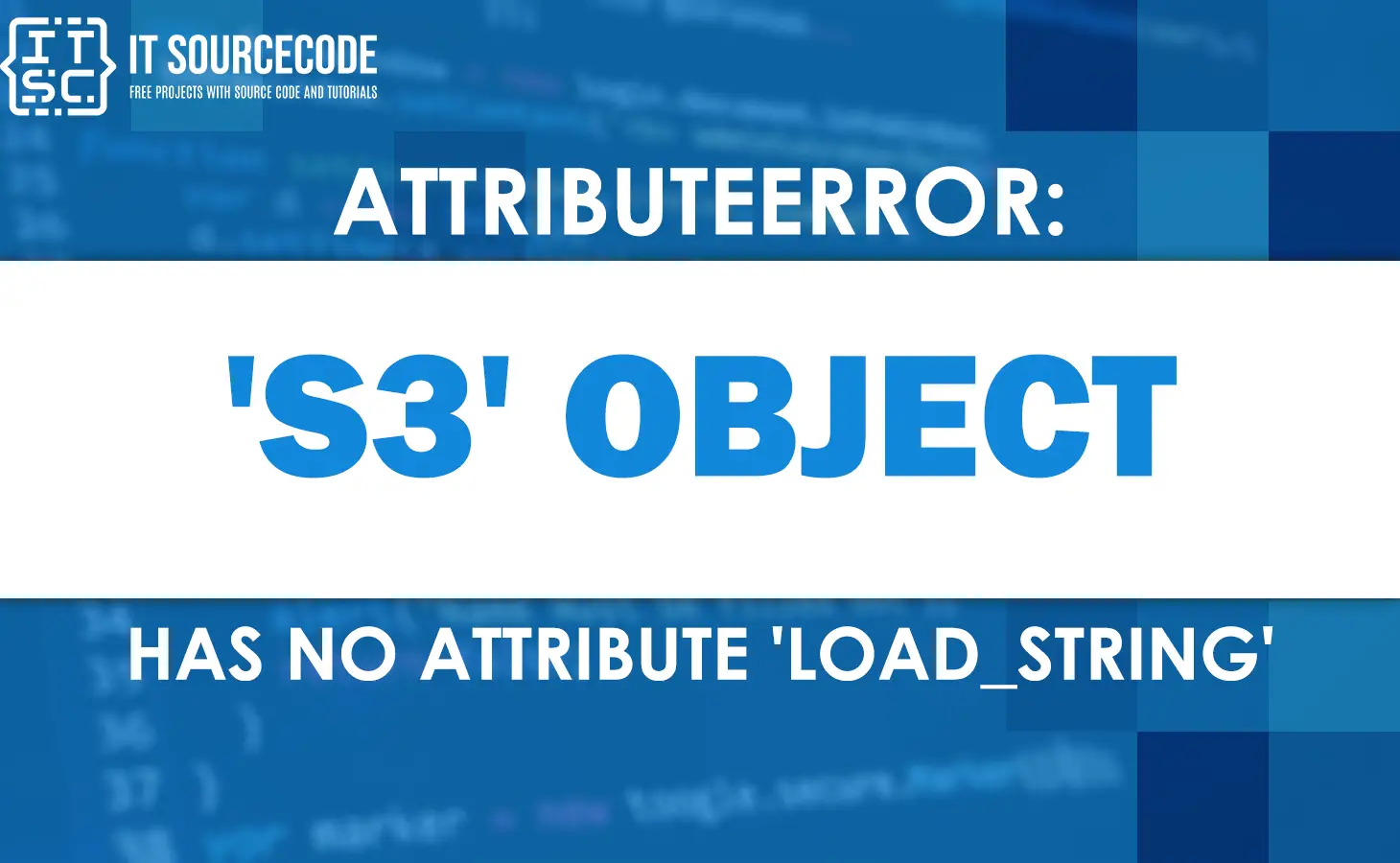Struggling to solve this “attributeError: s3 object has no attribute load_string“ error message? Well you are lucky enough because in this article we are going to discuss in detail about this error.
The “attributeError: s3 object has no attribute load_string” error occurs when you are trying to access the load_string() method on an object that does not have this attribute.
Before we dive into the solutions, we must first understand this error.
What is an S3 object?
The Amazon Simple Storage Service (S3) is a highly scalable, high-speed, web-based cloud storage service offered by Amazon Web Services (AWS). In S3, an object is a basic unit of storage, which is stored in a container called a bucket.
It’s designed to store and retrieve any amount of data, at any time, from anywhere on the web. An S3 object can be any kind of data, including text, images, videos, or other files.
What does “load_string” mean?
The “load_string” is not a built-in method of the Amazon S3 client in the Boto3 Python library. Therefore, if you try to use it, you will get the “attributeError: s3 object has no attribute load_string” error.
Nevertheless, the correct way to load the contents of an S3 object using Boto3 is to use the “get_object” method to retrieve the object, and then read its contents as a string.
If you encounter this error, you should check your code and replace “load_string” with the appropriate method, such as “get_object”.
What is “attributeerror: s3 object has no attribute load_string” error?
This error message usually happens when you’re trying to access the load_string method on an S3 object that doesn’t support it.
As what we mentioned above the load_string method is not a built-in method for S3 objects, so if you try to use it on an S3 object that doesn’t have the method, you’ll get the “attributeError: s3 object has no attribute load_string“ error message.
Example code:
import boto3
s3 = boto3.client('s3')
s3.load_string('your-bucket', 'your-object')By using this code will result an:

Solution for “attributeerror: s3 object has no attribute load_string” error
Here are the following solutions you may use to solve “attributeerror: s3 object has no attribute load_string.”
1. Using S3 object method
The error will be resolved using the s3.get_object() function, which returns the object so that it can access and get the contents out of it with the help of the .read() method.
import boto3
# Create an S3 client
s3 = boto3.client('s3')
# Get the contents of an S3 object
response = s3.get_object(Bucket='your-bucket', Key='your-object')
# Load the contents of the object into a string
contents = response['Body'].read()
print(contents)
It will resolve the error using the s3.get_object() method from the boto3 library.
2. Using s3.download_fileobj() method
The error will be resolved using the download_fileobj() method it downloads an object from S3 to a file-like object in binary mode.
import boto3
from io import BytesIO
s3 = boto3.client('s3')
data = BytesIO()
s3.download_fileobj('your-bucket', 'your-object', data)
data.seek(0)
contents = data.read()
print(contents)As you can see in the code above, two packages have been imported: boto3 and BytesIO.
Here are the things that you should understand if you are new to this error and why they are needed in the code:
- BytesIO object – use to hold data.
- S3Download_fileobj() method – use to download the object and store its data in the BytesIO object.
- Using.seek() method – it will return to the BytesIO object to read its contents.
- Using .read() method – it will read the content.
- Using the print() method – it will print the content in the console.
Take a look at another sample code below:
import boto3
from io import BytesIO
s3 = boto3.client('s3')
data = BytesIO()
s3.download_fileobj('your-bucket', 'your-object', data)
data.seek(0)
contents = data.read()
print(contents.decode('utf-8'))Take note that we added the decode method to convert the binary data into a string that can be printed. Also, you may need to modify the decode method based on the encoding of the downloaded file.
Related Articles for Python Errors
- Attributeerror: ‘numpy.ndarray’ object has no attribute ‘columns’
- Attributeerror: module emoji has no attribute unicode_emoji
- Module ‘lib’ has no attribute ‘x509_v_flag_cb_issuer_check’
Conclusion
Now you can easily fix the error because this article provides solutions for the “attributeerror: s3 object has no attribute load_string” object has no attribute ‘columns’“, which is a big help in solving the error that you are currently facing.
We are really hoping that this article will totally help you troubleshoot this “s3 object has no attribute load_string“ error.
Thank you very much for reading to the end of this article. Just in case you have more questions or inquiries, feel free to comment, and you can also visit our website for additional information.

